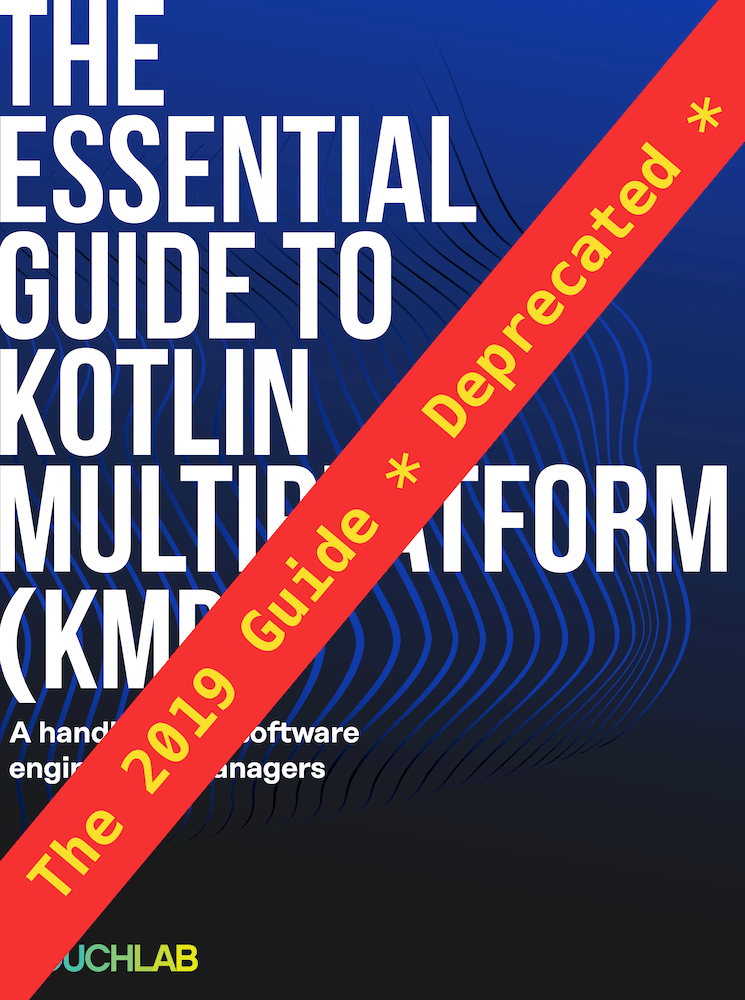Touchlab, your KMP day ones (but folks, day one was 5 years ago!)
Essential KMP info for 2024 and Beyond
5 years go by fast! Thousands of you have downloaded the original 2019 ebook (500+ just this year). In that time, we’ve helped our clients put KMP in production for millions of users, and this guide has become outdated and replaced by other content on our site.
We were going to take this down, but because so many engineers and leaders still find value in this Essential Guide from 2019, we’re going to leave it up for download (and posterity).
If you want to download our O.G. 2019 guide, we’ll also sign you up to get advance notification of all the new info coming out between now and KotlinConf!
